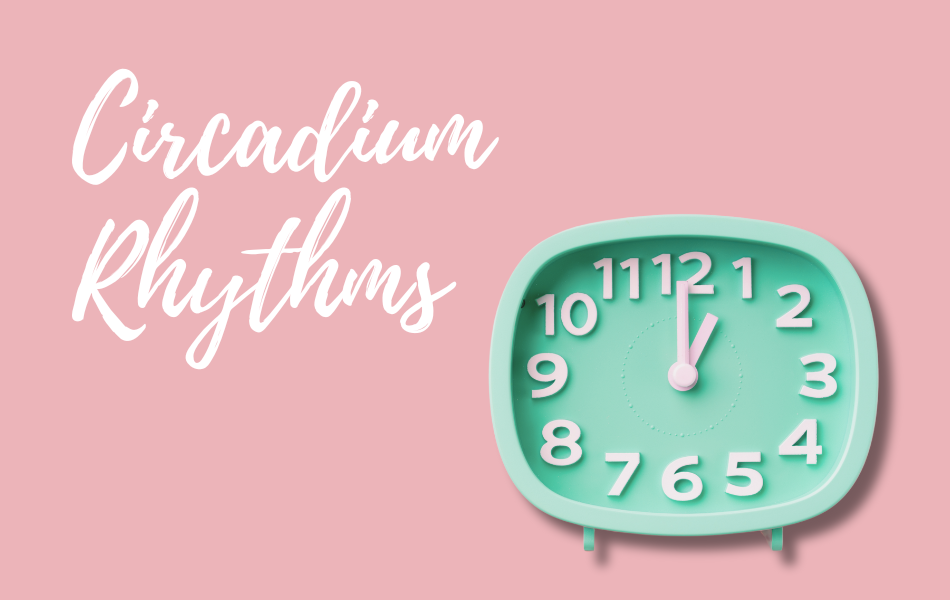Our bodies are finely tuned systems, guided by a 24-hour internal clock known as the circadian rhythm. This rhythm influences nearly every aspect of health, including sleep, energy, hormone balance, digestion and bowel function.
For people with IBS or sensitive digestion, circadian rhythms play a particularly important role. When eating, sleeping and daily routines are aligned with this internal clock, digestion tends to work more smoothly. When rhythms are disrupted, symptoms such as bloating, constipation, diarrhoea and fatigue often worsen.
In this guide, we’ll walk through the day and night, hour by hour, to show what your body and digestive system are doing and how you can support them.
The Body’s Daily Rhythms: Morning to Afternoon
6:00 am – 8:00 am: Waking and gut activation
As daylight increases, cortisol naturally rises, helping you wake up and feel alert. This hormone also plays a role in stimulating gut movement, which is why many people feel the urge to open their bowels in the morning.
Hydration and gentle movement at this time support bowel motility and digestion.
Tip: Start your day with a pint of water and light movement such as stretching or a short walk. Avoid heavy meals early on, as digestion is still switching on.
8:00 am – 10:00 am: Mental focus and nervous system balance
During these hours, cognitive function is high and the nervous system is well balanced. This is a good time for focused work and decision making.
From a gut perspective, stress levels are usually lower in the morning, which supports smoother digestion later in the day.
Tip: Use this time for mentally demanding tasks and avoid rushing food or eating on the run.
10:00 am – 12:00 pm: Digestive prime time
Late morning is one of the best windows for digestion. Enzyme production and gut motility are more active, making this an ideal time for your first substantial meal of the day.
This timing often works well for people practising gentle intermittent fasting or managing IBS symptoms.
Tip: Choose a balanced meal with protein, healthy fats and fibre to support steady energy and digestion.
12:00 pm – 2:00 pm: Natural energy dip
After eating, blood flow shifts toward digestion, which can lead to a natural dip in energy. This is not a failure of willpower but a normal physiological response.
For IBS, large or heavy meals at this time can increase bloating or sluggishness.
Tip: Keep lunch balanced rather than heavy. A short walk after eating can help support digestion and bowel movement.
2:00 pm – 4:00 pm: Second wind and gut movement
Energy levels often rise again during the early afternoon. Gut motility can also improve during this window, supporting bowel regularity.
Tip: This is a good time for lighter activity, creative work or problem solving. Avoid excessive caffeine, which can overstimulate the gut.
Evening Rhythms: Winding Down
4:00 pm – 6:00 pm: Physical performance peak
Late afternoon is when physical strength, coordination and muscle efficiency are at their best. Exercise during this time is often better tolerated and less stressful on the nervous system.
Movement also supports gut motility, which can be helpful for both constipation and diarrhoea patterns.
Tip: Aim for exercise, walking or stretching during this window where possible.
6:00 pm – 8:00 pm: Digestive slowdown begins
As evening approaches, digestion naturally slows. This is when the body begins shifting away from digestion and towards rest and repair.
Heavy or late meals during this window are more likely to cause bloating, reflux or disrupted sleep.
Tip: Choose a lighter evening meal with easily digestible foods and aim to finish eating earlier rather than later.
8:00 pm – 10:00 pm: Rest and digest preparation
Melatonin production increases, signalling that the body is preparing for sleep. The digestive system continues to slow, and the nervous system moves into a more relaxed state.
Tip: Reduce screen use, dim lights and avoid late snacking to support both digestion and sleep quality.
Night-Time Rhythms: Repair and Recovery
10:00 pm – 12:00 am: Physical repair
During early sleep, growth hormone is released. This supports tissue repair, immune function and gut lining maintenance. Eating late at night diverts energy away from these processes and can interfere with repair.
Tip: Consistent bedtimes support gut repair as much as they support sleep.
12:00 am – 2:00 am: Immune and detox support
The immune system becomes more active, and the brain begins clearing metabolic waste. The gut also benefits from this internal housekeeping.
Tip: Keep your sleeping environment cool, dark and quiet to support deep rest.
2:00 am – 4:00 am: Deep sleep and brain–gut reset
This phase is crucial for nervous system regulation. Poor sleep during this window is strongly linked to increased gut sensitivity and IBS symptoms the following day.
Tip: Avoid alcohol, late meals and sleep disruption to protect this vital stage.
4:00 am – 6:00 am: Preparing for the next day
Cortisol gradually rises again, preparing the body and gut for waking and bowel movement.
Tip: Where possible, allow yourself to wake naturally and avoid abrupt alarms.
Aligning with Your Circadian Rhythms for Better Gut Health
Working with your circadian rhythms rather than against them can have a powerful impact on digestion, bowel regularity, energy and sleep.
For IBS, this often means:
- eating at consistent times
- avoiding late meals
- supporting overnight gut rest
- prioritising sleep quality
Small changes to timing can create significant improvements.
If your digestion feels unpredictable or stuck despite trying different foods, looking at rhythm and routine is often the missing piece.
If you’d like support aligning your eating, sleeping and digestion in a way that works for your body, you’re welcome to book a free call to explore personalised guidance. Book your free call with Helen, today!

